August 15th is

Chauvin Day *
National Relaxation Day *
Check (Your Pet’s) Chip Day *
Lemon Meringue Pie Day

____________________________________
MORE! Biddy Mason, Robert Bolt and Gertrude Shope, click
_______________________________________
WORLD FESTIVALS AND NATIONAL HOLIDAYS
Catholic and Eastern Orthodox: Assumption Day – Virgin Mary bodily taken up to Heaven upon her death
Bangladesh – National Mourning Day

Congo Republic –
Féte nationale de l’indépendance
Costa Rica – Mother’s Day
Equatorial Guinea – Día de la Ley Fundamental
(Constitution Day)

India – Independence Day
Ireland – Lady’s Day
Liechtenstein – National Day
Peru – Arequipa: Founding Day *
Poland – Armed Forces Day
North Korea – Liberation Day
South Korea – Gwangbokjeol
(Independence from Japan Day)
____________________________________
On This Day in HISTORY
636 – Arab-Byzantine Wars, Battle of Yarmouk: The Rashidun Caliphate and the Byzantine Empire clash for six days in series of engagements along the Yarmouk River, east of the Sea of Galilee.

927 – The Saracens capture and destroy Taranto, a city in Southern Italy
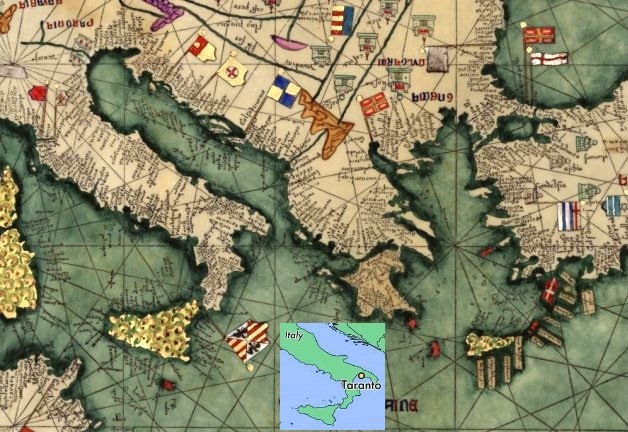
1057 – Macbeth, King of Scotland, is killed during the Battle of Lumphanan by the forces of Máel Coluim mac Donnchada (Malcolm III)
1250 – Matteo I Visconti born, key figure of the Ghibellines (Holy Roman Emperor supporters) in their struggle for dominance in Milan against the Guelphs (supporters of the Pope)
1281 – The Mongolian fleet of Kublai Khan is destroyed by a “divine wind” in the Battle of Kōan against the Japanese

1519 – Ciudad de Panamá is founded by Pedro Arias de Ávila in what is now Panama
1540 – Founding of Arequipa * Peru, by the Spaniard Garcí Manuel de Carbajal
1717 – ‘Blind Jack’ John Metcalf born, the first professional road builder and civil engineer in Britain during the Industrial Revolution. John Metcalf became blind at the age of six after he contracted smallpox. He was given fiddle lessons to prepare him to earn a living, and by age 15, was working at the Queen’s Head, a prosperous tavern in Harrogate, but he soon branched out into horse trading to supplement his income, and knew the surrounding countryside so well that he was hired by visitors as a guide. He also began working as a carrier, carting dry goods, then fish, and expanding to stones for construction. His fiddling helped him make valuable connections. In 1765, when Parliament passed an act authorising the creation of turnpike trusts to build new toll-funded roads, he used his experience as a carrier to win a contract, as there were few people with any practical road-building knowledge in his area. He built a road with good drainage, which led to a number of other contracts, and he was regarded as a master road builder
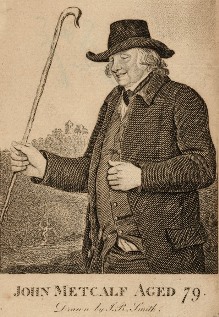
1725 – Ferdinando Bertoni born, Italian composer, organist at San Marco in Venice
1769 – Napoleon Bonaparte born in Corsica, future self-crowned Emperor of France
1771 – Sir Walter Scott born, Scottish novelist, poet, biographer and historian; (novels) Ivanhoe, and Waverly; (poem) “The Lady of the Lake”

1787 –Eliza Lee Cabot Follen born, American writer, editor, poet, hymnist and abolitionist; she was a Unitarian known for her piety, and among her many works are two which she edited for Sunday school classrooms: The Christian Teacher’s Manual and a periodical, The Child’s Friend. She also wrote Anti-Slavery Hymns and Songs, and To Mothers in the Free States, and a collection of poems for children called The Lark and the Linnet
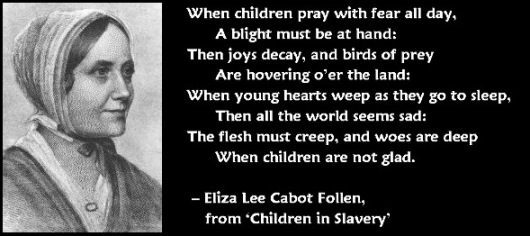
1790? – Nicolas Chauvin * may have been a French soldier, so blindly devoted to his idol Napoleon and all things French that the word chauvinism was coined from his name, originally meaning over-zealously patriotic and disdainful of all other nations. Now it is used to describe anyone who insists on the superiority of whatever they espouse by disparaging its opposite. Since there is no birth record for him, he may be apocryphal, so Napoleon’s birthday was chosen as the date for Chauvin Day * to remind us that anything taken to extremes becomes ridiculous
1796 – John Torrey born, first professional botanist in America, chemist and physician; co-founder of the New York Lyceum of Natural History, now the NY Academy of Science; appointed botanist to New York state (1836-1843); noted for Flora of the Northern and Middle States, and for studies of the flora of New York, the Mexican Boundary, the Pacific railroad surveys, as well as his uncompleted Flora of North America

1818 – Bridget “Biddy” Mason born as a slave, separated from her parents, and given as a wedding gift to Robert Smith and his bride; she bore three children whose likely father was Robert Smith. When Smith converted to Mormonism, he moved his entire household West, ending in the free state of California, where Biddy Mason filed a petition for her freedom in Los Angeles County Court, but was not allowed testify on her own behalf; when Smith failed to appear, she, her three daughters and 13 other slaves were granted their freedom, a landmark decision in California law. While she had no formal education, she had been trained by other slave women as a midwife, and found work in Los Angeles delivering babies. She saved enough to buy a house and land, one of the first black women to own property in Los Angeles, then successfully bought and sold property during the land boom, amassing a substantial profit, a great deal of which she used to start a daycare center, a shelter and soup kitchen for the poor, and giving much of the money to build the Los Angeles First AME Church
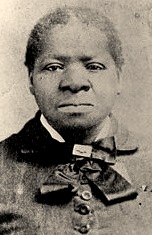
1824 – Marquis de Lafayette arrives in New York to begin an American tour
1841 – Julia Tutwiler born, American educator and social reformer; advocate for women’s rights, especially to higher education, and for prison reform. She was the only woman president of Livingston Normal College (1890-1907), now University of West Alabama, and a key figure in the creation of the Alabama Girls’ Industrial School in 1896. Tutwiler was inducted into the Alabama Women’s Hall of Fame
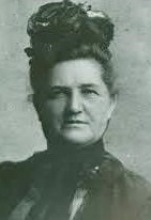
1843 – Tivoli Gardens, now one of the world’s oldest amusement parks, opens in Copenhagen, Denmark

1848 – M. Waldo Hanchett, American dentifrice manufacturer, patents the dental chair
1858 – Edith Nesbit born, British author, poet and political activist; published children’s books under the name E. Nesbit. She was a co-founder of the Fabian Society in 1884. The society’s early members included George Bernard Shaw, H. G. Wells, Annie Besant, Ramsay MacDonald, Sidney and Beatrice Webb, and Emmeline Pankhurst

1860 – Florence Kling Harding born, American newspaper business manager and U.S. First Lady (1921-1923). When she married Warren G. Harding in 1891, he was five years younger than she was, and he was the publisher of The Marion Star, the only daily newspaper in Marion, Ohio. She became deeply involved in the newspaper, running the paper’s circulation department, and then the business office when the manager quit. Many considered her the real brains behind the operation. She kept the paper running during her husband’s recurring illnesses, which were later recognized as early signs of the heart condition which would kill him. When he entered politics, she helped keep his adulterous affairs under wraps, carefully managing his public image. She was the first First Lady to vote, the first to ride in an airplane, to own a radio, to operate a movie camera, and the first to invite movie stars to the White House. She also had a strong influence over the selection of cabinet members. Kling Harding praised Madame Curie when Curie visited the White House, as an example of a professional woman who was also a supportive wife. Her special project as First Lady was the welfare of war veterans. Warren G. Harding died of a heart attack in San Francisco in August, 1923, after falling ill during a coast-to-coast rail tour dubbed the ‘Voyage of Understanding.’ Florence Harding died of renal failure in November, 1924, at the age of 64
Photo of Florence Harding by Edward Jackson, front page of New York Daily News,.February 5,1921
1877 – Thomas Edison writes the president of the Telegraph Company suggesting that “hello” would be a more appropriate greeting than “ahoy” when answering the telephone
1879 – Ethel Barrymore born as Ethel May Blythe, American stage, screen, radio and television actress, member of the Barrymore acting dynasty. Along with her friend, actress Marie Dressler, she was a strong supporter of the Actors’ Equity Association, and had a high-profile role in the 1919 strike, when the AEA was fighting for performers to have a bigger share in the profits of stage productions, and to provide benefits for elderly and disabled actors. Her participation ended her friendship with George M. Cohan, who was both a performer and a producer, and took the producers’ side during the strike. Her career began while she was still in her teens, after her mother’s death from tuberculosis at age 36 in 1893. Barrymore and her brother Lionel both had to earn a living, and neither finished high school. She found success onstage both in the U.S. and Great Britain, where Winston Churchill was among her many admirers. By 1928, she was so popular on Broadway that when the Shuberts opened a new theatre on 47th Street, they named it the Ethel Barrymore Theatre, and she appeared in its first production, The Kingdom of God. It is now the only theatre named by the Shuberts for one of their stars that has remained as a legitimate theatre in New York. She won the 1944 Academy Award for Best Supporting Actress for the film None but the Lonely Heart, and was nominated as supporting actress for three additional films. She died in 1959 of heart disease, shortly before her 80th birthday
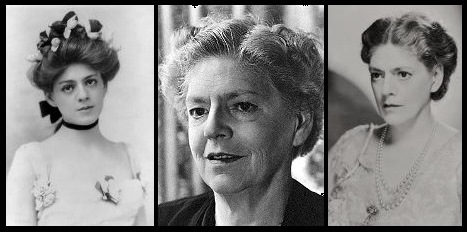
Ethel Barrymore – 1901 – 1950s – 1930s
1881 – Zaccheus R. Mahabane born, South African Methodist minister and activist; President of the African National Congress (1924-1927 and 1937-1940); President of the South African Native National Council of Cape Province (1919 – 1923)

1882 – Marion Eugenié Bauer born, American composer, teacher and author; composed piano, orchestral and vocal pieces; associated with New York University and Juilliard; editor of the Musical Leader, author of Twentieth Century Music
1882 – Gisela Richter born, prominent British-American classical archaeologist, art historian and author; attended Girton College (1901-1904) at the University of Cambridge, but Cambridge did not award degrees to women at that time; spent a year at the British School in Athens, then moved to the U.S. in 1905 and became an American citizen in 1917. She was hired as an assistant at New York’s Metropolitan Museum of Art in 1905, was promoted to assistant curator in 1910, then to associate curator in 1922. Richter was the Met’s first woman curator, of Greek and Roman art (1925- 1948), and one of the most influential figures in classical art history of the day; she wrote several popular books on classical art, which increased the general public’s understanding and appreciation of the subject, including Greek, Etruscan and Roman Bronzes; Animals in Greek Sculpture: A Survey; Roman Portraits; and A Handbook of Greek Art
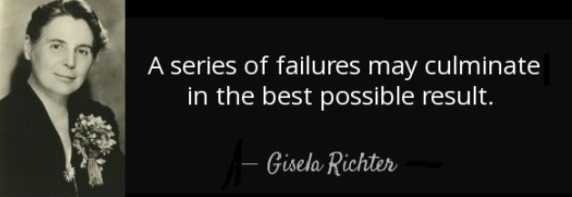
1885 – Edna Ferber born, American novelist and playwright; 1925 Pulitzer Prize for So Big; novels Giant, Showboat, Saratoga Trunk: also co-author with George S. Kaufman of plays Dinner at Eight, Stage Door

1890 – Jacques-François Ibert born, French orchestral composer; briefly administrator of the Paris Opera (1955), but resigned because of ill health
1896 – Gerty Radnitz Cori born, Jewish Czech-American biochemist; she was one of the few women in medical school in Prague in 1917, where she met Carl F. Cori; they were married upon graduation in 1920, and emigrated to America in 1922. They collaborated on medical research, and published their findings as co-authors at Carl’s insistence, in spite of attempts by the institutions who hired him to discourage the practice; Gerty Cori became the first woman to be awarded a Nobel Prize in Physiology or Medicine (1947), shared with her husband and Argentine physiologist Bernardo Houssay (who did related work on the role of the pituitary gland), for their discovery of the mechanism by which glucogen is broken down in muscle tissue into lactic acid, then resynthesized in the body and stored as a source of energy (known as the Cori cycle). They also identified the important catalyzing compound, the Cori ester. She died in 1957, after a ten-year struggle with myelosclerosis, a rare form of bone cancer, still active in research until the end. In 2004, both Carl and Gery Cori were honored posthumously by the American Chemical Society for their achievements in carbohydrate metabolism
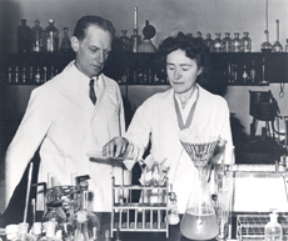
1896 – Catherine Doherty born in Russia, Baroness Ekaterina Fyodorovna Kolyschkine de Hueck Doherty; Russian Canadian Catholic social worker, social justice activist, author and notable public speaker. Ekaterina, born into a family of minor Russian nobility, was raised in the Russian Orthodox Church. In 1912, she was married at age 15 to her first cousin Baron Boris de Hueck. During WWI, she became a Red Cross nurse at the front. She and her husband barely escaped during the Russian Revolution, and endured near-starvation as refugees in Finland before they reached England in 1919. She converted to Catholicism. Next, they emigrated to Canada. She began earning money as a speaker, becoming a regular on the U.S. Chautauqua lecture circuit, but the strain of long absences shattered her marriage. In 1932, she gave up all her possessions to establish Friendship House in downtown Toronto, running a soup kitchen, teaching and living among the poor. Labeled a communist sympathizer, she had to close Friendship House in 1936. She spent a year in Europe observing Catholic lay action groups, and then established a new Friendship House in Harlem in New York. The interracial center distributed goods to the poor, hosting lectures and discussions to promote racial understanding. In 1943, after her first marriage was annulled because they were first cousins, she married Eddie Doherty, an American journalist. The Dohertys left New York in 1947, moving to Combermere, Ontario, Canada, to retire, but she was soon running a new rural apostolate, Madonna House, which now has field-houses throughout the world. She died in 1985, at age 89
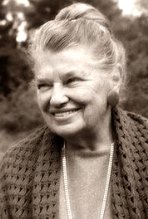
1904 – Bill Baird born, American puppeteer
1912 – Julia Child born, American author of Mastering the Art of French Cooking

1914 – The Panama Canal officially opens to commercial traffic. SS Ancon is the first ship to pass through the canals
1920 – Polish-Soviet War: During the Battle of Warsaw, the day of the ‘miracle on the Vistula’ when several Polish soldiers report seeing a vision of the Virgin Mary, and a surprise Polish counter-offensive on the Red Army’s flank, while it is engaged in attacking the city, soundly defeats the Soviets, and keeps Poland independent
1920 – Judy Cassab born as Judit Kaszab in Austria; artist who emigrated to Australia in 1950; first woman to win the Archibald Prize twice, in 1960 and 1967; appointed an Officer of the Order of Australia in 1988
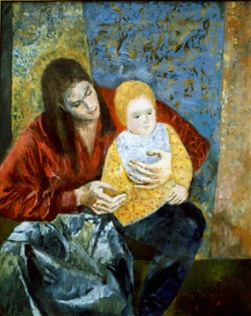
Mother holding child 1995 – Judy Cassab
1924 – Robert Bolt born, English dramatist, A Man for All Seasons, and radio play author; Academy-award-winner for Doctor Zhivago and A Man for All Seasons screenplays

1924 – Hedy Epstein born in Germany, Jewish-American political activist; she was rescued from Nazi Germany by the Kindertransport in 1939. In England she worked in a munitions factory. All but two of her family were killed at Auschwitz. After the war, she worked with the Allied occupying forces in Germany, then immigrated to the U.S. in 1948. She became an activist for affordable housing, the antiwar movement, and for reproductive choice. In 1982, after reading news reports of massacres committed by a Lebanese Phalangist militia with the complicity of the IDF during Israel’s 1982 invasion of Lebanon, Epstein became an opponent of Israel’s military policies. In 2001, she founded the St. Louis chapter of the anti-war group, Women in Black. In 2003, she began traveling to the West Bank to work with the International Solidarity Movement, reporting in 2004 that at the age of 80, she had been strip searched and cavity searched by guards at Ben Gurion International Airport. When she tried to speak on U.S. college campuses about what she had observed and experienced, she was vilified by several Jewish organizations for “demonizing both Israelis and Jews” and inflaming anti-Semitism. Ill-heath curtailed her participation in attempts to break Israel’s naval blockade of ships attempting to deliver humanitarian aid to the Palestinians, but she was arrested in 2014 for failure to disperse at a Black Lives Matter protest in St. Louis against the killing of Michael Brown and subsequent police actions. She died at the age of 91 from cancer
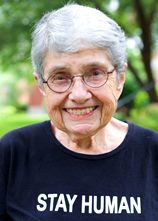
1925 – Gertrude Shope born in South Africa but raised in Zimbabwe; South African politician and activist; became a member of the Government of National Unity Parliament in 1994. She was a teacher in Natal and Soweto, who joined the African National Congress in 1954, then resigned her position as part of the boycott of the Bantu Education Act, which reinforced apartheid by insuring an inferior education for black children. Was active in the Federation of South African Women, but had to join her husband in exile (1966-1990), and they travelled to lobby for support of the ANC. She also worked for the World Federation of Trade Unions during their exile. Shope was elected in 1991 as president of the ANC’s Women’s League, serving until 1993, and also worked with Albertina Sisulu on convening the ANC’s Internal Leadership Corps Task Force (1990-1991)
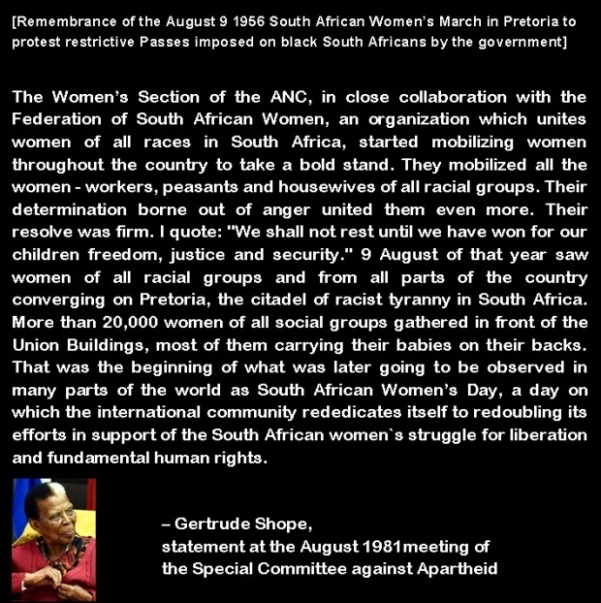
1927 – John Cranko born in South Africa, dancer-choreographer with Sadler’s Wells and the Royal Ballet, director of the Stuttgart Ballet; opera stage director

1935 – Régine Deforges born, French author, editor, and playwright; she was the first woman to own and operate a publishing house in France, and was frequently censored, prosecuted and heavily fined for publishing “offensive” literature. Her best-known novel, La Bicyclette bleue (The Blue Bicycle), became the bestseller in France in 1981, and was followed by six sequels. It became a major international intellectual property case when Deforges was accused of plagiarizing Gone With the Wind. She was initially found guilty, but won her case on appeal, and the order to pay damages was rescinded
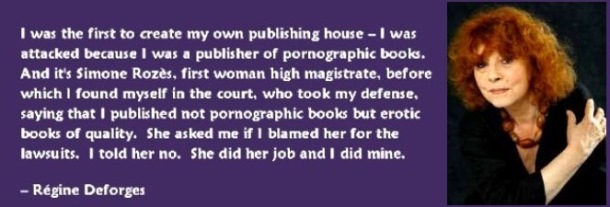
1935 – Will Rogers and Wiley Post were killed in a plane crash in Alaska
1938 – Maxine Waters born, American Democratic politician; U.S. Representative from California since 1991, member of the Congressional Black Caucus and the Congressional Progressive Caucus; California State Assembly (1976-1990); outspoken opponent of the administrations of both Bushes and Donald Trump

1939 – The Hollywood premiere of The Wizard of Oz at Grauman’s Chinese Theater
1943 – Eileen Bell born, Northern Irish Alliance Party politician; Member of the Northern Irish Assembly (1998-2007), the second Speaker of the Assembly (2007); General Secretary of the Alliance Party (1986-1993); left politics in 2007, and became the Legislative Advisor and Vice President of Autism NI, a charitable organization which promotes collaboration between parents and professionals, and to support families of children with Autism
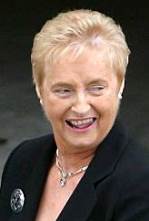
1945 – Khaleda Zia born, Bangladeshi politician; Leader of the Opposition (2008-2014); the first woman Prime Minister of Bangladesh from 1991 to 1996, and again from 2001 to 2006; leader of the Bangladesh Nationalist Party (1984-2018); became embroiled in a corruption scandal in 2018 and found guilty of embezzling funds
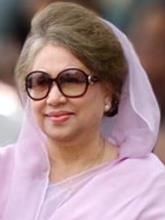
1947 – India becomes independent of British rule, then is split into the two nations of India and Pakistan. Muhammad Ali Jinnah becomes first Governor-General of Pakistan. Lord Mountbatten remained as the transitional Governor-General of India, succeeded by Chakravarti Rajagopalachari, who was was the first and only Indian to serve as Governor-General (1948-1950). He was followed by Dr. Rajendra Prasad, as India’s first president (1950-1962)
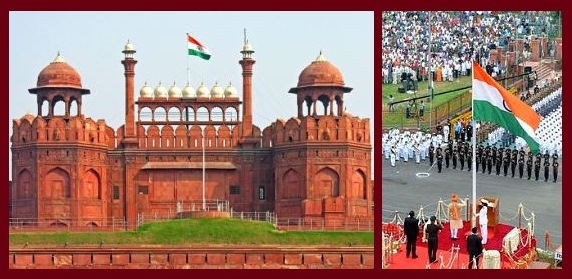
The Red Fort in Delhi: Independence Day ceremonies
1948 – The Republic of Korea is established south of the 38th parallel north
1951 – Ann Biderman born, American screenwriter and television producer; adapted screenplay for the English language version of Smilla’s Sense of Snow; creator and producer of the series Southland and Ray Donovan
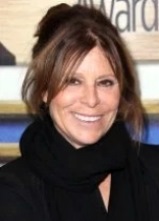
1956 – Lorraine Desmarais born, French Canadian jazz pianist and composer
1957 – David Simons reaches 101,526 feet (30,942 meters) in the Man High 2 balloon, and USAF Captain Joe Jordan reaches 103,389 feet (31,513 meters) in an F-104 jet fighter
1960 – Republic of the Congo becomes independent from France
1961 – East German workers begin construction on the Berlin Wall
1961 – Suhasini Mani Ratnam born, Indian actress known as Suhasini, director, producer and writer. She directed the film Indira in 1995, and Penn in 1991 for television, and was one of the writers on Ravanan (epic adventure film), and Iruvar (political film)

1962 – Inês Pedrosa born, Portuguese author, journalist and playwright; director of the Casa Fernando Pessoa cultural center
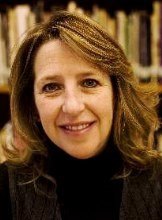
1962 – Vilja Toomast born, Estonian politician; member of the Estonian Riigikogu (legislature, 1992-2008), then served in the European Parliament (2009-2013)

1969 – Opening Day: Woodstock Music and Art Fair will draw over 400,000 people
1971 – Bahrain becomes independent from the UK
1973 – U.S. military stops bombing Cambodia
1979 – Led Zeppelin releases their album In Through the Out Door
1985 – Fourth-grader Sean Moeller founds National Relaxation Day * saying in a Des Moines Register interview that cleaning and real work are not part of relaxation

1986 – U.S, Senate approves economic sanctions against South Africa
1994 – U.S. Social Security Administration becomes an independent agency, separating from Department of Health and Human Services
1995 – In South Carolina, Shannon Faulkner becomes the first female cadet to enroll at The Citadel; after death threats are made against her family, she drops out
2001 – Astronomers announced discovery of first solar system outside our own after discovery of two planets orbiting a star in the Big Dipper
2013 – The Smithsonian announces discovery of the olinguito, first new carnivoran species found in the Americas since 1978

2015 – The American Veterinary Medical Association launches Check the Chip Day * – to make sure your pet’s subcutaneous chip is still active
2017 – The U.S. National Park Service reported that Vandals used red spray paint to write “f**k law” on a column at the Lincoln Memorial in Washington DC. Crews were carefully removing the graffiti using a “gel-type architectural paint stripper that is safe for use on historic stone.” The vandalism may be related to the violence in Charlotteville, Virginia, which erupted during a White Supremacist protest against the removal of a statue of Confederate General Robert E. Lee, erected in the Charlottesville park in 1924. The U.S. Civil War effectively ended 59 years before the statue was dedicated when General Lee surrendered

2019 – Israel announced it will block the US congresswomen Ilhan Omar and Rashida Tlaib from entering the country after public pressure from Donald Trump.
The official reason given was their advocacy of a boycott and sanctions against Israel because of its treatment of Palestinians. There had been much speculation in the past few weeks about a possible Israeli government ban the two women, who are among the four Democratic women in Congress that Trump said in July 2019 should go back to the countries they “originally came from”. Three of the four were born in the U.S. and Ilhan Omar, daughter of Somali refugees, moved to America in 1995 with her family after four years in a Kenyan refugee camp. She became a U.S. citizen in 2000. Rashida Tlaib is of Palestinian descent, and wanted to see her 90-year-old grandmother who lives in the occupied West Bank

Ilhan Omar (left) and Rashida Tlaib
____________________________________


Reblogged this on dean ramser.